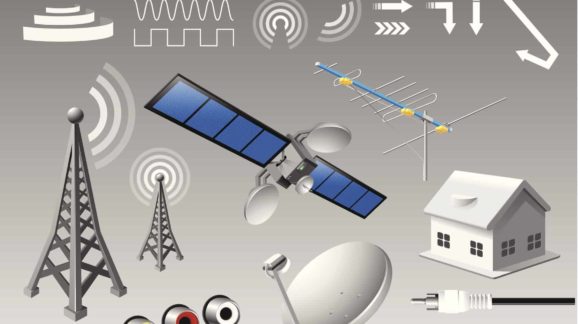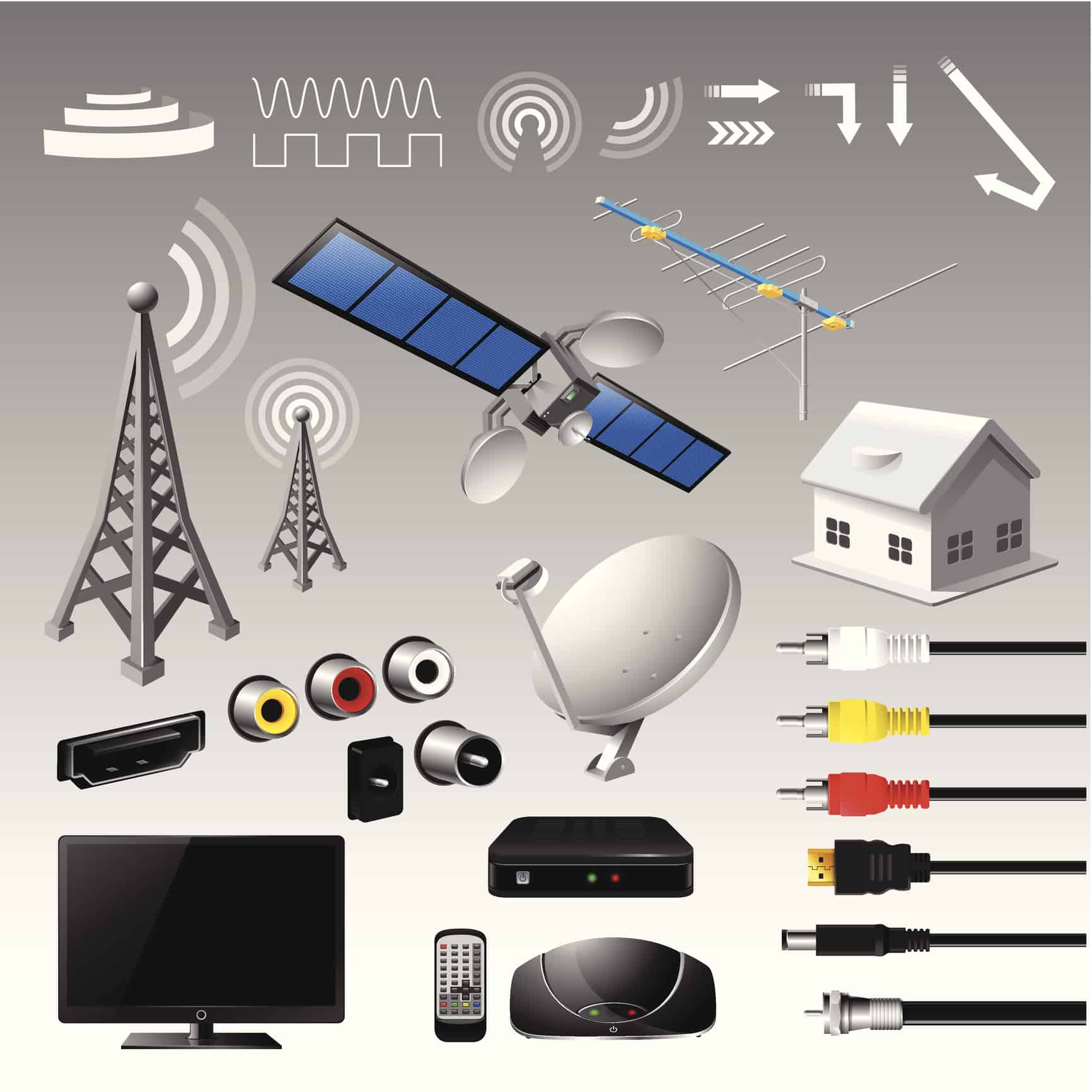AT&T-Time Warner Deal Highlights Need for FCC Reform

 Thirteen Democratic senators recently sent a letter asking AT&T and Time Warner to submit a “public interest statement” regarding AT&T’s proposed acquisition of Time Warner. Even though the merger is currently under antitrust review by the Department of Justice, the senators want AT&T and Time Warner to prepare the same lengthy documents that would be required if the deal were also subject to review by the Federal Communications Commission—even though the agency has no legal authority to review this particular transaction. The senators’ attempt to effectively expand the scope of the Communications Act is a reminder of how bloated and overly broad this law has become—and should serve as a reminder to Congress of the need to reform the FCC’s authority to regulate the media marketplace.
Thirteen Democratic senators recently sent a letter asking AT&T and Time Warner to submit a “public interest statement” regarding AT&T’s proposed acquisition of Time Warner. Even though the merger is currently under antitrust review by the Department of Justice, the senators want AT&T and Time Warner to prepare the same lengthy documents that would be required if the deal were also subject to review by the Federal Communications Commission—even though the agency has no legal authority to review this particular transaction. The senators’ attempt to effectively expand the scope of the Communications Act is a reminder of how bloated and overly broad this law has become—and should serve as a reminder to Congress of the need to reform the FCC’s authority to regulate the media marketplace.
By way of background, AT&T reached a deal to buy Time Warner for $85 billion in October 2016. Time Warner owns media properties including Warner Bros., a major Hollywood studio, and numerous television networks, such as HBO, CNN, and TBS. Time Warner is distinct from Time Warner Cable, a cable company that’s now owned by Charter.
AT&T has yet to finalize its purchase of Time Warner, however, because the Department of Justice’s ongoing review process. The Hart-Scott-Rodino Act imposes a “waiting period” on particularly large transactions like this one so that regulators can poke around, gather documents, and decide whether to give the green light. If the Department of Justice’s Antitrust Division—or, in some cases, the Federal Trade Commission—concludes that a proposed deal would violate antitrust law, the government may bring a lawsuit in federal court to block the transaction. In the coming weeks, therefore, the DOJ will need to decide how to respond to the AT&T-Time Warner deal.
Antitrust agencies aren’t the only regulators who examine telecom and media mergers. Certain transactions involving telecommunications companies are also subject to review by the Federal Communications Commission. Although the headlines often describe the FCC as “reviewing” media mergers, the agency’s legal authority is technically much more limited. Specifically, section 214(a) of the Communications Act requires a company to obtain FCC approval before extending, acquiring, or operating a common carrier facility. Similarly, section 310(d) of the Act requires FCC approval before a company transfers, assigns, or disposes of a radio station license. Under both provisions, a company has the burden of demonstrating that its acquisition of a common carrier facility or station license would further the public interest. At best, this FCC approval process is duplicative of antitrust review; at worst, it obstructs the evolution of the marketplace by saddling merging companies with costly, unnecessary conditions.
In practice, whenever the FCC examines applications that are part of a major telecom merger, the agency reviews the deal in its entirety—not simply the elements of the transaction that involve common carrier facilities or radio station licenses. So, for instance, the FCC conducted a wide-ranging review of Comcast’s acquisition of NBC Universal that hinged on NBCU’s ownership of numerous broadcast licenses, including several “owned-and-operated” NBC-affiliated local broadcast stations.
The FCC’s transaction review criteria can differ wildly from one year to the next. Unlike the antitrust laws, which the Supreme Court has interpreted as a “consumer welfare prescription” rooted in economics (at least in theory), the Communications Act’s “public interest” standard isn’t really a standard at all. As former FCC Chairman Michael Powell once put it, the “public interest standard is a bit like modern art; people see in it what they want to see.” The standard, he warned, “invites mischief by regulators and politicians to advance parochial interests under the guise of public interest.”
Despite the FCC’s omnipresent role in the telecom sector, not every media merger actually entails the transfer of a common carrier facility or station license. A film studio, for instance, falls in neither of these categories. Nor does a cable television channel, assuming it doesn’t broadcast an over-the-air signal or hold any other FCC wireless licenses. Although some cable channels do hold such licenses in conjunction with, say, wireless microphones or long-range satellite uplinks, companies that create and distribute cable television programming generally don’t depend on operating common carrier facilities or station licenses.
AT&T made headlines last month when it announced it will not acquire Time Warner’s limited FCC licenses, which include one independent broadcast station in Atlanta and certain satellite uplink licenses. By foregoing the purchase of these assets, AT&T will not need to seek the FCC’s approval for its acquisition of Time Warner. In other words, the agency has no legal basis for reviewing the transaction.
Unsurprisingly, this news roused the ire of the thirteen Democratic senators I mentioned earlier. That group, including Sens. Al Franken (D-MN), Ed Markey (D-MA), and Richard Blumenthal (D-CT), demanded that AT&T and Time Warner submit an additional public interest statement that “includes a comprehensive and detailed explanation of whether and how the proposed transaction would produce consumer benefits, encourage competition, remedy all potential harms, and ultimately serve the public interest.” This happens to be precisely what companies must file with the FCC in seeking approval for a license transfer under the Communications Act. For example, when Charter sought to acquire Time Warner Cable and Bright House Networks, it submitted an FCC filing that contained some 360 pages of argument, exhibits, and declarations regarding the proposed transaction.
Although the senators’ letter does not seek to compel AT&T and Time Warner to submit a public interest statement—a demand that would push the bounds of Congress’s broad subpoena powers—they would clearly prefer that the AT&T-Time Warner deal undergo the same drawn-out process as media transactions that are subject to FCC review. The letter emphasizes that the public interest statement should be “made available to the public, and consumers, advocacy organizations, and the business community” so that they “are given a meaningful opportunity to respond with their perspective on how the transaction would impact their individual interests.” In other words, if the FCC can’t extract the usual pound of flesh from the AT&T-Time Warner deal, the companies should at least voluntarily offer their rivals and critics a consolation prize in the form of a public interest statement.
In and of itself, it’s not all that consequential if AT&T and Time Warner endure a negative news cycle or cut a series of six-figure checks to pay for a team of lawyers and economic consultants to prepare a lengthy document to satisfy thirteen senators. Instead, what’s most troubling about the senators’ letter is its reminder that many in Congress still believe that the FCC and the Communications Act don’t cover enough of the media marketplace. At a time when most of the growth in content creation is in the least regulated sectors, if anything, the Communications Act is in need of considerable winnowing. Consider the television industry: in 2010, over 50 percent of all scripted original television series in the U.S. were created for broadcast television networks. By 2016, that figure had dropped to about 32 percent, while Internet-based platforms such as Netflix and Hulu are now responsible over one in five original series. Yet instead of liberalizing the rules that apply to broadcasters and cable networks, the FCC under the recently departed Chairman Tom Wheeler actually proposed extending cable regulations to certain online platforms. (CEI filed comments in that proceeding with ICLE and TechFreedom in which we criticized the legal basis for the proposed rule.)
To be sure, antitrust review itself is a lengthy, cumbersome process that often hurts consumers more than it helps them, as my CEI colleagues have explained many times. But the FCC’s review of license transfer applications under the Communications Act has been subject to fewer judicial constraints than the antitrust laws, enabling agency regulators to reject pro-competitive mergers or insist on economically irrational conditions even when mergers are approved. The circus surrounding AT&T’s acquisition of Time Warner is just the latest example of this problem.
For more reform ideas, see the tech and telecom chapter of CEI’s Free to Prosper: A Pro-Growth Agenda for the 115th Congress and my recent Web Memo (with Jessica Melugin and Marc Scribner), First Steps for the Trump Administration: Support Technology and Innovation.